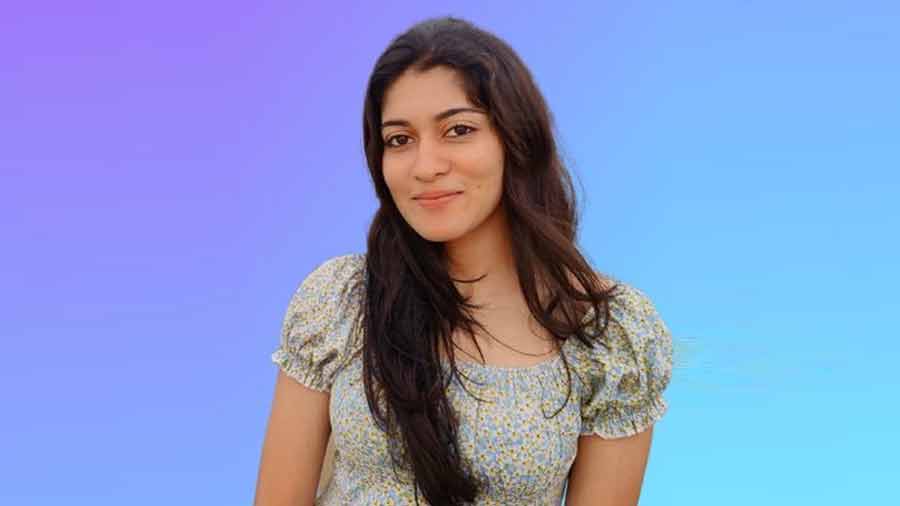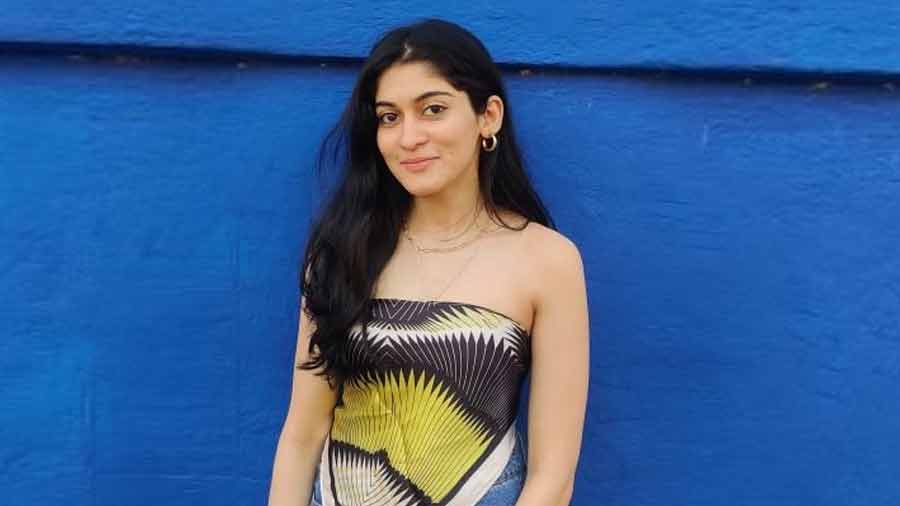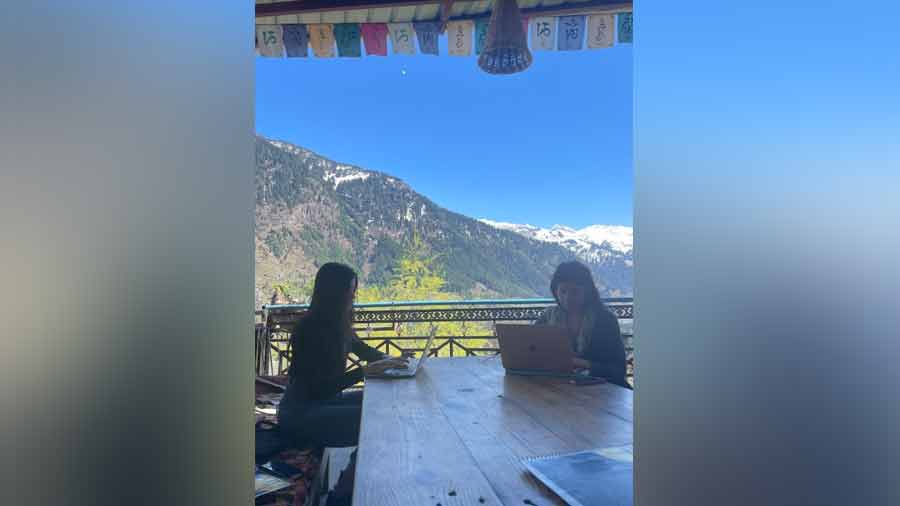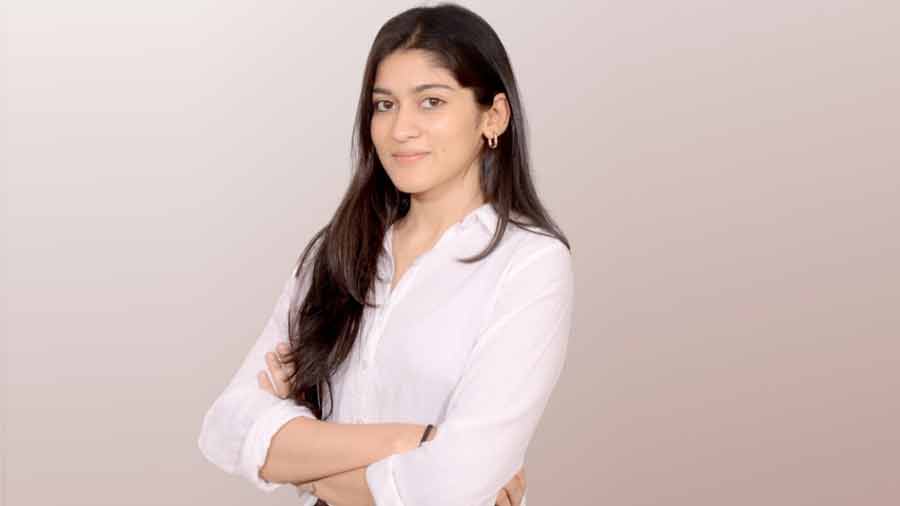“Content is king,” wrote Bill Gates in an essay in January 1996, coining a phrase that has come to define the digital ecosystem some two decades later.
The growth of content-driven industries has changed the landscape of digital media, opening up fresh avenues and career paths, including that of digital marketing and strategy. With the ever-increasing popularity of social media, it is not enough to have a good idea. One must be able to make the most of it through organic growth and sustained traction online, from LinkedIn to Twitter to Instagram.
How? Ask Vedika Bhaia, founder of The Fourth Square, which specialises in social media and content marketing. With more than 85,000 followers on LinkedIn, Vedika knows what it takes to leverage personal branding through quirky and creative ways to expand businesses.
My Kolkata caught up with the Kolkata girl. Edited excerpts from the conversation follow.
From accounts to design to digital marketing

It was Vedika’s dad’s advice to explore digital marketing that eventually worked out for her @Vedika Bhaia/Twitter
My Kolkata: Are you a digital marketing expert by accident or design? Was there any particular event or experience that acted as a catalyst?
Vedika Bhaia: Definitely by accident. I wasn’t enjoying my studies at college at all, so I used to try other things in my spare time. First, I thought that I like accounts so maybe I can do something related to that but boy, was I wrong! Then I thought that I love drawing and making creative cards and gifts for people so maybe I could get into the design field. I worked on that for a bit and sat for a few design school exams as well, but didn’t get selected. I gave up on design after that. Finally, my father told me to explore digital marketing; I thought why not try that as well. I undertook a few internships and kind of liked it. Then, I explored more courses and found myself liking it a lot. Eventually, I took up a six-month course on it and that’s how I knew that this was something I actually wanted to do, and was good at.
What course did you take on your way to becoming a digital marketing expert? And why did you decide to focus primarily on LinkedIn?
I took a six-month course by business growth strategist Manuj Bajaj. He used to fly out from Delhi to Kolkata every week to teach us. My father and I did this course together because this was only for people who had big businesses, and since my father wanted me to learn from the best, he did the course with me. I really owe him a lot for pointing me in the right direction.
For Plan A to work, don’t have a Plan B
You founded The Fourth Square just two years after college. Did you have any inhibitions back then about how it would all work out and was there a Plan B in mind?
For Plan A to work, don’t have a Plan B. That’s what I believe. So, no, I didn’t have a Plan B in mind. It was either being my own boss or working for someone, and I really didn’t want to do the latter. I knew I had to figure a way out. Maybe the fact that I had no other options helped me to just figure things out.
My biggest regret is that 80 per cent of my clientele was based in India
Now that The Fourth Square has been operating for almost three years, what have you made of its growth so far? How do you plan on expanding it?
My biggest regret is that 80 per cent of my clientele was based in India, because I almost did no cold outreach for my company. I used to get inbound leads from LinkedIn, and that led me to getting a lot of clients but not the ones who’d pay as well as people in the US or UK would. To scale this, I’ve already started reaching out to folks in foreign countries and started getting amazing clients who I really like working with. I’ve also started my own course with my business partner Unnati Bagga. We teach people how to grow on Twitter, LinkedIn, and Instagram (just like we both have done ourselves) and our second course is about how to get clients through cold outreach.

Vedika believes that modern businesses are all about managing relationships between people @Vedika Bhaia/Twitter
Your LinkedIn bio says that you do not believe that business is B2B or B2C, but that it is P2P (Person to Person). Could you elaborate what you mean by this?
This is how I see it:
B2C= Selling to people
B2B= Selling to people that work at a company
In the end, it’s all about selling to people. One person selling to another. That’s what P2P is all about, as simple as that.
I will NOT promise you likes OR followers, all I will promise is to give you LEADS
You also say, “No, I will NOT promise you likes OR followers, all I will promise is to give you LEADS”. Could you elaborate why? And does this also act as an entry barrier to help get you the kind of clients you want?
Most marketers tell their clients that they’ll increase their followers or likes, and my dad always told me that they are vanity metrics. If you have tons of followers with no business coming in, it’s as good as having no followers. I knew I had to make this my USP and harp on it. I got a lot of prospective clients telling me that this line (of promising leads and not likes or followers) caught their attention the most.
Which social media platform has been the most challenging and why?
Instagram. I only started making content there five months ago, because I was procrastinating all this while. It just takes too much time to make content on Instagram and sometimes the ROTI (Return on Time Invested) isn’t justified. But now, I’ve made a great community there, and I want to help people not make the same mistakes I did.
Make reels to grow on Instagram
Could you help us bust a few myths about achieving growth on the following platforms?
- LinkedIn: People think they can just send and accept requests and that’s all LinkedIn is about. It’s so, so much more. Writing content, engaging with others’ posts, networking, focusing on your target group, to name a few.
- Twitter: “People just talk about Bollywood and politics on Twitter”. No. The kind of learnings I’ve gained from Twitter, no other platform has. Very underrated platform.
- Instagram: “It’s tough to grow on Instagram”. It’s not, you just need to make reels.
- YouTube: “You have to make long videos on YouTube”. Not really, YouTube Shorts is booming right now.
How has the pandemic impacted your work? Has the transition to online media made it easier for you to find clients?
As it turns out, I’m a pandemic entrepreneur. So, it was very easy for me to fit in. In fact, the pandemic helped me grow at the pace that I have.
I work more on weekends than on weekdays
What does an average workday or work week look like for you? Is your schedule optimised based on optimal timings for social media posts?
I work more on weekends than on weekdays. I try to finish all content-related work by the weekend so that my entire week is light and I can focus more on my content, upskilling myself and managing my team. I try to schedule posts as much as I can, but yes, I have to be free around my posting times.
Pointers on nailing the work-play balance

The right company matters a lot on workcations, feels Vedika Vedika Bhaia
In an interview with BBC earlier this year, you spoke about the need for workcations. What is the secret to balancing fun and work when you are on a workcations?
Without workcations, life wouldn’t be as fun as it is right now. For my mental health, I keep taking a lot of workcations. There are a few pointers to keep in mind when it comes to work-play balance on a workcation:
- Adjust your expectations: You can’t go into a workcation expecting the rest and relaxation you get from a regular getaway. Expect to be busy if you want to explore your surroundings while managing work at the same time.
- Plan your day: You don’t want to be in your hotel or hostel the whole time, but you can’t be on the go the whole day either. I recommend working in the morning, going out in the evening (find those sweet sunset spots!) and wrapping up work again at night.
- Find the right company: Vacationers and workcationers don’t mix. If your friends want to party every night and stay out the whole day, you’ll barely be able to do anything together. Find friends who have similar objectives for the trip.
- Stay longer: Though this may sound counter-intuitive, stay in one place for at least a week before moving. This way, you can work, soak in the vibe and explore all the best spots while avoiding stress and FOMO.
After all, it’s about balance.
Dad taught me that smart work can never substitute hard work
We often see your dad (Manish) chip in with some relevant insights on your social media posts, especially on Instagram, with what you call “Dad’s Gyaan”. How important has he been in your journey? What is the most important thing that you have learnt from him?
I wouldn’t be where I am without my dad. At every point in my life, he has played a huge role. He’s my mentor and I wouldn’t have it any other way.
The series “Dad’s Gyaan” started when he and I were having our mandatory Sunday discussions on how I can grow and improve my business and myself as a person, and I realised that more people need to hear what he has to say. I just took out my phone camera and pointed it at him. He was not super comfortable at first, but now he’s got the validation he wants and secretly enjoys the attention he gets from my community!
The most important thing that I learned from him would be: Do smart work but remember that it can never substitute hard work.
I’m trying to learn calmness and composure from my mom
Your mother (Pinki) runs this innovative training vehicle for senior citizens, Mobile Pathshaala. What is your most important learning from your mother?
I absolutely love how she’s helping elders to be more digitally smart. She’s a very patient teacher and teaches people with a lot of care. No matter how many questions they ask, she always answers them gracefully in a very calm and composed way. I’m trying to learn that from her.
I love street food-hopping in Kolkata; Ping’s is my favourite restaurant

Ping’s Cafe Orient is Vedika’s favourite place to eat in Kolkata Facebook
What does Kolkata mean to you?
Kolkata means home. Always. The comfort I get here, I can’t get anywhere else.
What are your favourite things to do and places to eat in Kolkata?
Street food-hopping. In terms of restaurants, Ping’s Cafe Orient (Middleton Row) is my favourite.
Gymming and painting to zone out
Besides all things digital, what are your hobbies and interests? What do you do to zone out?
I love going to the gym, and I’m very regular with it. I have a rule: No phone at the gym.
Apart from that, I paint from time to time to defrag and also have started reading recently.
Your Twitter bio says “rants about anything that annoys me”.... What annoys you?
Ads on Spotify.
Where do you see yourself in five years’ time?
I see myself building products.
Finally, if you could tell something to the Vedika of five years ago, what would it be?
Don’t stress, you’ll eventually figure it out.
